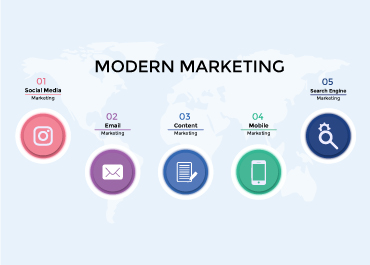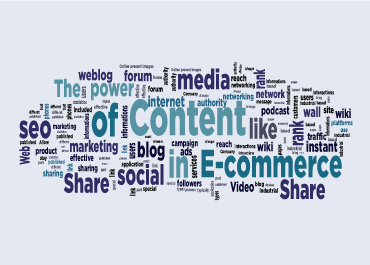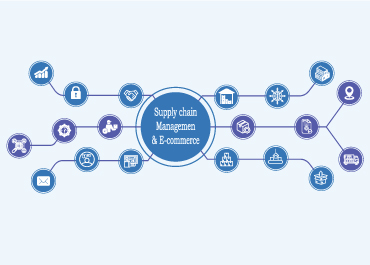
When it comes to e-commerce, content writing is an essential element to attract and retain customers. Good content can make or break a sale, which is why it's so important to write and provide authentic, catchy as well as quality product content on e-commerce sites.
Content commerce (or content-driven commerce) can greatly benefit businesses. By providing an excellent digital customer experience, they can differentiate themselves from the competition and retain their customers. However, implementation is a challenge. What are the genuine benefits of content marketing in e-commerce? What technologies are required, and how do they function in practice? This article discusses content commerce in great detail.
What is E-commerce content writing?
E-commerce content writing is the creation of content for online marketplaces and businesses. This type of writing aims to engage potential customers, improve search engine rankings, and ultimately result in more sales. The content can include product descriptions, blog posts, social media posts, and email marketing campaigns, among other things.
The goal of e-commerce content writing is to provide valuable information to customers that will help them make informed purchasing decisions, as well as to improve search engine rankings and increase website traffic.
Why content on E-commerce is important?
Good e-commerce writing should assist customers in understanding the worth of your products and feeling confident in their purchase decision. You can convert browsers into buyers and build a loyal customer base with the right approach. Use descriptive words to assist customers in visualizing the item and understanding why they require it.
The importance of good content allows businesses to communicate information about their products or services to their customers in an appealing and educational manner. Good-quality content can help businesses establish themselves as experts in their field, build brand loyalty, and ultimately increase sales. Having strong content can also help improve a business's search engine optimization (SEO) and online visibility.
How should e-commerce content be structured?
Product content should be designed to provide customers with sufficient information to make an informed purchasing decision. Product descriptions, features, specifications, images, videos, and reviews are essential components of the e-commerce shopping experience and have a large impact on customer satisfaction and sales rates.
Ultimately, high-quality product descriptions and information contribute to increased sales and customer trust.
Tips for creating effective e-commerce content:
- Focus on the customer's needs: Your product descriptions should clearly highlight how your product can fulfill your customer's needs. Use language that resonates with your target audience and highlight the benefits of your product.
- Use high-quality images and videos: The images and videos you use on your website should be high-quality and showcase your product's unique features. Customers need to see what they're buying before making a purchase.
- Optimize product descriptions for search engines: Use relevant keywords in your product descriptions to help your website rank higher in search results. Make sure your product descriptions are original and don't include duplicate content.
- Stay up to date with e-commerce trends: As e-commerce evolves, it's important to stay up to date with the latest trends and best practices. Attend industry events and conferences, read industry publications, and follow relevant blogs and social media accounts.
Consequences of poor content:
Poor content can lead to a variety of negative consequences. It can have an impact on a site's search engine rankings because search engines favor high-quality, relevant, and authentic content. Furthermore, poor content can result in low conversion rates because customers may not find the information they require to make informed purchasing decisions. This can lead to revenue loss. In contrast, engaging content can increase traffic and conversions, resulting in increased revenue and customer satisfaction.
Furthermore, it can result in negative reviews and a tarnished brand reputation, which can have an impact on long-term success.
Future of content writing:
The future of content writing is constantly evolving as new technologies emerge and new trends develop. As content writing becomes more sophisticated, it is becoming more and more important for businesses to have a strong content strategy in place in order to remain competitive.

One major trend that is shaping the future of content writing is the increasing use of artificial intelligence (AI) and automation. AI and automation are being used to streamline content creation and make it more efficient. For example, AI can be used to generate content ideas, create content outlines, and even write the content itself. This can help businesses create content quickly and at scale, without having to rely on manual labor.
Finally, writing copy that engages your audience is key, whether it's through storytelling, humor, or emotional appeals. People buy from brands they trust and connect with, so be authentic and relatable in your language. In conclusion, effective e-commerce content writing requires a deep understanding of your target audience and the ability to create compelling product descriptions that engage customers and drive conversions. However there must be a strong reason behind the saying, CONTENT IS KING…







